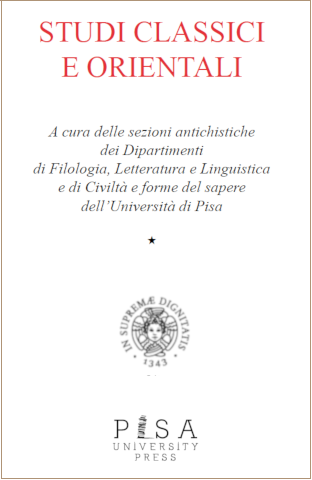l problema dell’iscrizione di incolae, liberti, coloni e municipes nelle curiae delle città della Baetica romana tra criteri territoriali e requisiti giuridici
Abstract
The problem of the registration of incolae, liberti, coloni and municipes into the curiae of the communities of Roman Baetica between territorial criteria e juridical requisites.
In the study of the electoral prescriptions contained in the statute of the Latin municipium of Malaca in Baetica (and referable to all the communities that were concerned by the so-called Lex Flavia municipalis), it is commonly accepted without further discussion that the distribution of the civic body into curiae – that is electoral sections comparable for function and structure to the analogue tribes of Rome – was substantially defined according to territorial criteria: in other words, each curia would have represented a part, for instance a neighborhood, of the city, and accordingly collected the citizens living in that specific area. In this respect, the reference to the Roman tribal model appears to have played an important role in shaping the modern interpretation of the curiae mentioned by the statutes of Roman Baetica.
However, a new analysis of the norms regulating the registration (by lot) of the incolae (of Latin or Roman right) of Malaca into a single curia at the moment of the vote, and the analysis of a fragment – probably pertaining to a municipal statute of an unknown community of Baetica – mentioning the existence of a curia explicitly intended for the vote of the local liberti, suggest that the criteria by which the civic curiae were defined were not of a mere topographical nature, but also responded to complex juridical requirements. This was especially the case of citizens, or more in general voters, who did not belong to the common civic body of the community (made of coloni and municipes), but were registered as incolae and liberti.
From the study of the above-mentioned evidence it arises that the curiae only (or essentially) fulfilled their function as a section of the civic body at the moment of the vote; on the contrary, as far as other administrative tasks were concerned, other structures were referred to, such as the vici or other topographical subdivisions.
In this respect, the study lays stress on the formal, but also substantial, differences between two otherwise seemingly comparable civic structures, namely the tribes of Rome and the curiae of Malaca, which, on the other hand, emphasizes the degree of independence of the local communities of the Empire, when shaping their own administrative structures.


